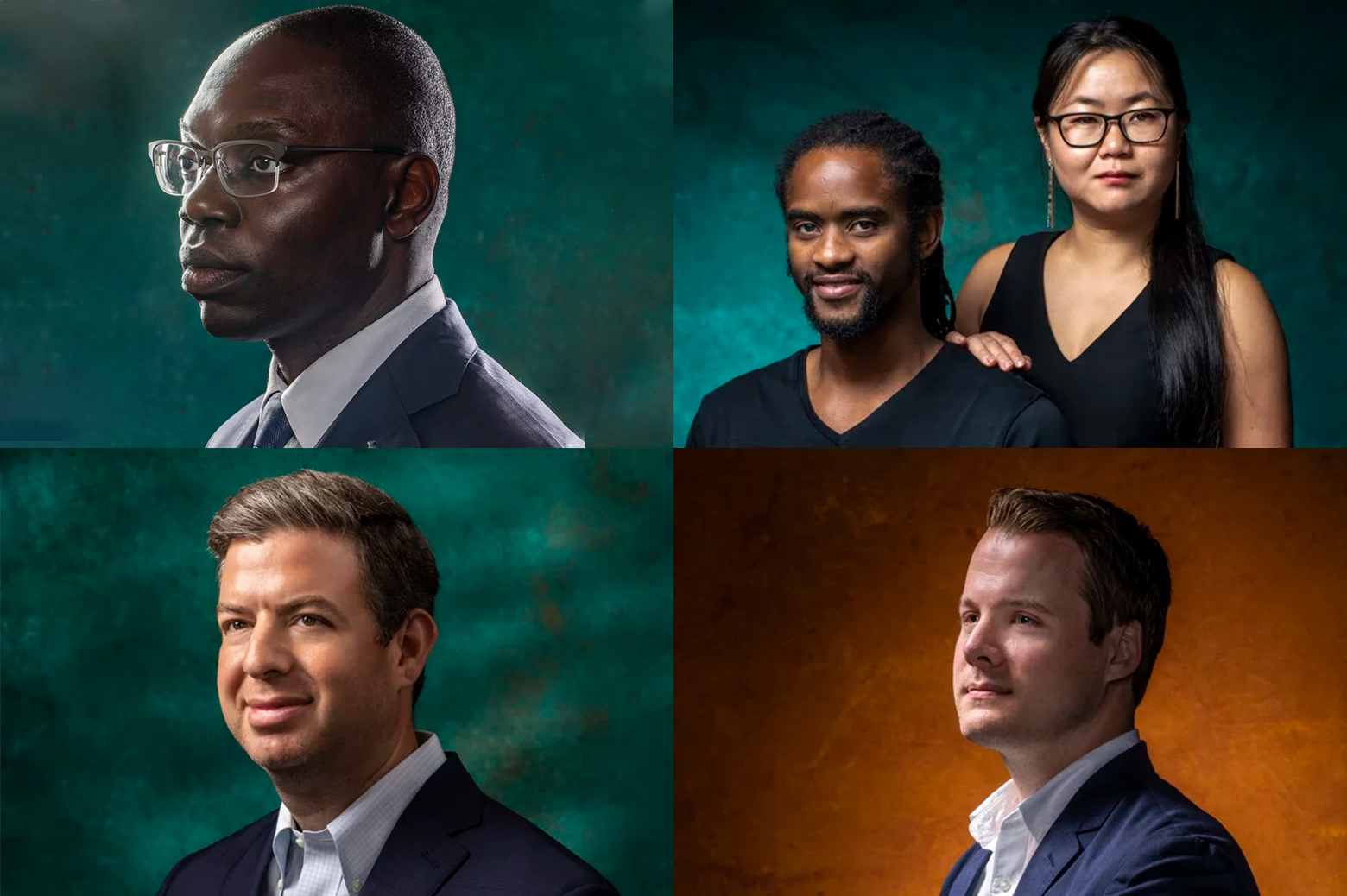Five EECS faculty and alumni recognized for business success
Nominees were selected based on their career accomplishments, impact in their field, and contributions to their community.

 Enlarge
Enlarge
EECS made waves in the local business community this year – so much so that five people on Crain’s Business Detroit’s 40 Under 40 list for 2019 were affiliated with the division. The list recognizes accomplished business leaders for “their work on Michigan’s most pressing issues: technology, inclusivity and opportunity for all.” Honorees were selected by Crain’s editorial staff based on their career accomplishments, impact in their field and contributions to their community, and to reflect the diversity of the region’s business community.
This year, three EECS alumni (Gralin Gilchrist II, Jon Oberhide, and Greg Schwartz) and two faculty (Profs. Jason Mars and Lingjia Tang) made the list.
Profs. Jason Mars and LIngjia Tang (listed together)
This pair of researchers have led their Ann Arbor-based artificial intelligence company, Clinc AI, through one of its most successful years to date. The company, whose technology allows companies to more easily interact with customers, closed on a venture-capital funding round of $52 million. Crain’s reports that they hope the Series B funding round will be a key to an initial public offering of stock by 2022, allowing them to continue to develop their AI with the goal of vastly improving how humans and computers interact.
Clinc developed and markets Finie, a Siri-like voice-controlled app originally intended for financial institutions. It has since expanded its customer base to include Ford Motor Co. and is targeting health care, travel and hospitality, the gaming industry and quick-service restaurants. Mars and Tang run the Clarity-Lab in CSE, short for cross-layer architectures and run times in 10 years. The group designs the scalable architecture needed to support future artificial intelligence applications.
Garlin Gilchrist II (BSE CE and CS ‘05)
Gilchrist is the 64th lieutenant governor of Michigan, the first African American to serve in this post, as well as a successful entrepreneur, engineer, and activist.
Gilchrist was born in Detroit. After college, he moved to Washington and worked for Microsoft for four years as a software engineer, where he helped build SharePoint. Next, Gilchrist worked as a community organizer and director of new media for the Center for Community Change, now known as Community Change. Later, he worked for MoveOn.org in Washington, D.C., as national campaign director.
In July 2014, Gilchrist moved back to Detroit, working for the City government under as director of innovation and emerging technology. He created the Improve Detroit smartphone app that allows residents to report issues for the city to address. He served as Founding Executive Director of the U-M Center for Social Media Responsibility within the School of Information from the U-M Detroit Center.
Jon Oberheide (CSE BSE MSE PhD, ‘06 ‘08 ‘09)
Oberheide is co-founder of cybersecurity success Duo Security. The company, headquartered and founded in Ann Arbor, popularized two-factor authentication with its cloud-based services. Its tools offer clients authentication procedures and user access policies to prevent security breaches and account takeovers.
Oberheide founded the company in 2010 with fellow EECS alum Dug Song (BS CS ‘97). Duo now employs more than 800. In 2017 it was announced as Michigan’s first unicorn startup after closing a Series D round of $70 million, and was later sold to Cisco for $2.3 billion.
Greg Schwartz (BSE CE ‘03)
Schwartz is the COO and Co-Founder of StockX, a popular e-commerce platform for the resale market of high-end, luxury sneakers. After a $110 million round of Series C funding in 2019, the company is valued at over $1 billion. The platform works similar to a stock market, where buyers place bids and sellers place asks. When a bid and an ask match, an item is sold. The market is separated into 4 categories: sneakers, watches, handbags, and streetwear.
StockX launched in February 2016, and has since grown precipitously. The company will have revenue of more than $1 billion at the end of 2019. It employs more than 500 in Detroit and more than 800 worldwide. Sellers send their collectible items to authentication centers to be verified as bona fide, then the items are shipped to buyers. The company has authentication centers in Detroit, New Jersey, Arizona, London and the Netherlands.
Previously, Schwartz co-founded UpTo Inc., which in 2012 launched a forward-looking social network rooted in connecting people based on what they had coming up in their lives such as sporting events, concerts or drinks and dinner plans.
 MENU
MENU 
